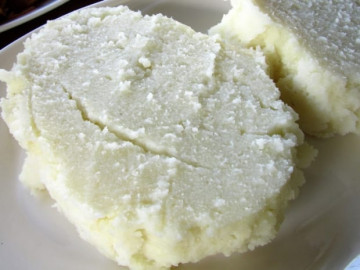Forget inflation graphs: Put food back on our plates!
Published on: September 09, 2025 09:50 (EAT)


Audio By Vocalize
For 3 years now, we have been fed statistics, percentages, and graphs about how inflation is easing, how the economy is “on the right track,” and how the Central Bank’s targets have been met. But if there is one thing every common mwananchi knows, is that you can’t eat percentages.
Yes, inflation might have dropped to 3.8 percent, and economists will smile at their neat charts. But when a 2-kilogram packet of maize flour still costs more than what a casual worker earns in a day, when sugar is becoming a luxury, and when basic vegetables like carrots and cabbages rise in price every other week, we don’t feel the “good news.” The truth is that the economy is not measured by abstract numbers, but by what sits on the plates of ordinary Kenyans.
For us, the basics matter more than the grand economic jargon. It will be progress if sugar can cost even Ksh.20, if a cabbage can be affordable enough for every household, if unga is truly cheap on the shelves not in campaign rallies, then you wouldn’t need to tell us about economic recovery, we would live it.
And this is where the government must rethink its approach. The cost of living will never be solved by speeches or pointing fingers at inflation figures. It will only be solved by making sure the systems that deliver food to our tables are efficient, reliable, and affordable. That begins with infrastructure. Fixing roads in food-producing areas, ensuring smooth transport from farms to markets, and reducing the bottlenecks that add unnecessary costs to food prices are the practical steps that matter. A cabbage that rots on the farm because of impassable roads or exploitative middlemen is more painful than an economist’s lecture on global food chains.
We also need policies that protect local farmers and reduce over-reliance on imports. Empower smallholder farmers with subsidies, access to affordable inputs, and direct market access without brokers taking the lion’s share. If farmers prosper, food prices naturally stabilize. If we keep frustrating farmers with high input costs and poor markets, we will forever cry about the cost of food. And note that affordable inputs like fertilizer is only affordable if we've produced enough for our plates, if not, there's need to make it more and more affordable.
Most importantly, leadership must embrace honesty and empathy. Do not sing to us about how much the shilling has strengthened or how “our fundamentals are strong.” That does not translate into cheaper carrots for a struggling mother in Kibera or Bungoma. What translates is a bag of maize that moves easily from Kitale to Nairobi without doubling in price. What translates is walking into a shop and buying sugar without asking for credit.
This is not too much to ask for from our government and we are not asking for luxuries. We are asking for affordable food. For our children to eat without us counting coins. For unga, sugar, and vegetables to cost what our pockets can bear.
Until then, every statistic about economic progress is just noise. Real progress is measured at the dinner table.
By Sebastian Karani Asava


Leave a Comment